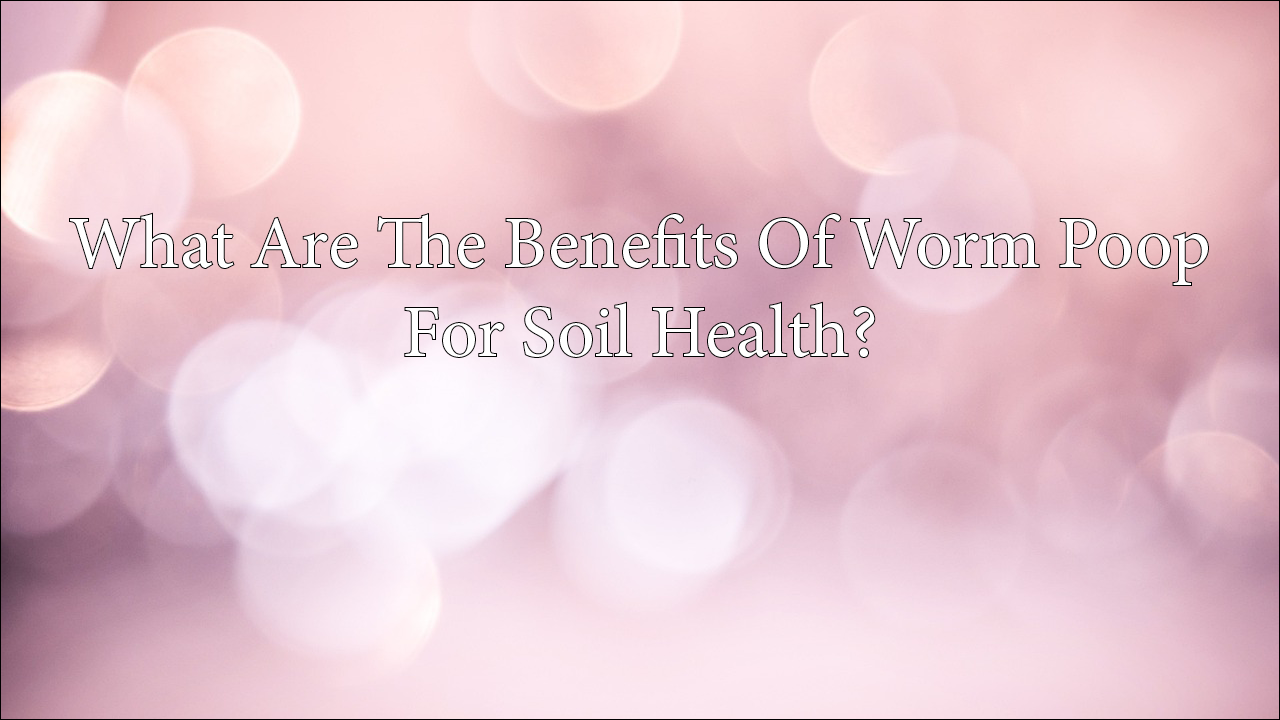
From sustainable agriculture and ecological cultivation, an unlikely hero emerges from the depths of the earth – worm poop, scientifically known as vermicompost. While the notion of using worm excrement might raise eyebrows, the undeniable truth is that worm poop has proven itself to be a valuable elixir for soil health. As researchers, farmers, and environmentalists delve into the science behind this unassuming substance, a treasure trove of benefits unfolds that holds the potential to revolutionize the way we approach soil cultivation and land management.
The Magic of Vermicompost
Vermicompost, often referred to as “black gold,” is the result of the controlled breakdown of organic matter through the digestive system of earthworms. This process not only enhances the nutrient content of the resulting compost but also imbues it with unique properties that are advantageous for soil health and plant growth.
Key Components of Vermicompost
Vermicompost is a complex mixture of organic matter, worm castings (fecal matter), and microorganisms. It stands out from traditional compost due to its higher nutrient content, improved water retention, and increased microbial diversity. The key components include:
- Nutrient Enrichment: Worms are efficient decomposers that break down organic matter into simpler forms. This breakdown releases essential nutrients such as nitrogen, phosphorus, and potassium in forms readily accessible to plants. These nutrients are vital for plant growth and development.
- Microbial Boost: The digestive process within worms’ guts fosters the growth of beneficial microorganisms. These microbes play a crucial role in soil structure, nutrient cycling, and disease suppression. Their presence can enhance soil fertility and resilience.
- Soil Structure Improvement: Vermicompost’s fine texture and granular structure improve soil aeration and drainage. This porosity promotes root growth and prevents compaction, allowing plants to access water and nutrients more effectively.
The Benefits Explored: FAQs

FAQ 1: How does vermicompost compare to traditional compost?
Answer: While both vermicompost and traditional compost offer nutrient enrichment and organic matter, vermicompost boasts superior nutrient availability, microbial diversity, and soil structure improvement due to the digestive processes within the worms’ guts.
FAQ 2: Can vermicompost replace synthetic fertilizers?
Answer: Vermicompost can serve as a partial replacement for synthetic fertilizers. Its nutrient content and organic matter contribute to soil health and plant nutrition. However, the specific nutrient requirements of crops must be considered, and vermicompost may be used in conjunction with other fertilization strategies.
FAQ 3: Is vermicompost production scalable?
Answer: Yes, vermicompost production can be scaled from small-scale home systems to large commercial operations. However, proper management of worm populations, feeding regimes, and environmental conditions is essential to maintain efficiency and quality.
FAQ 4: Does vermicompost prevent plant diseases?
Answer: The microorganisms present in vermicompost can help suppress certain plant diseases by promoting a diverse and balanced soil microbial community. While not a guarantee, the enhanced microbial activity can contribute to disease resistance.
FAQ 5: Can vermicompost remediate contaminated soils?
Answer: Vermicompost’s ability to improve soil structure and microbial diversity can aid in the remediation of contaminated soils. It can enhance the degradation of pollutants and heavy metals over time, contributing to soil restoration.
Cultivating a Greener Future
As researchers continue to delve into the intricacies of vermicompost and its myriad benefits, its role in sustainable agriculture becomes increasingly evident. From replenishing nutrient-depleted soils to promoting water retention and disease resistance, worm poop has proven its worth as a natural asset for land restoration and plant cultivation. As we strive for more ecologically conscious farming practices, vermicompost stands as a testament to the untapped potential lying beneath our feet.
So, the next time you pass a bustling worm bin, remember that within those wriggling creatures lies a powerful force that could shape the future of agriculture and environmental stewardship.
Enhance your soil health and plant growth with the magic of vermicompost.